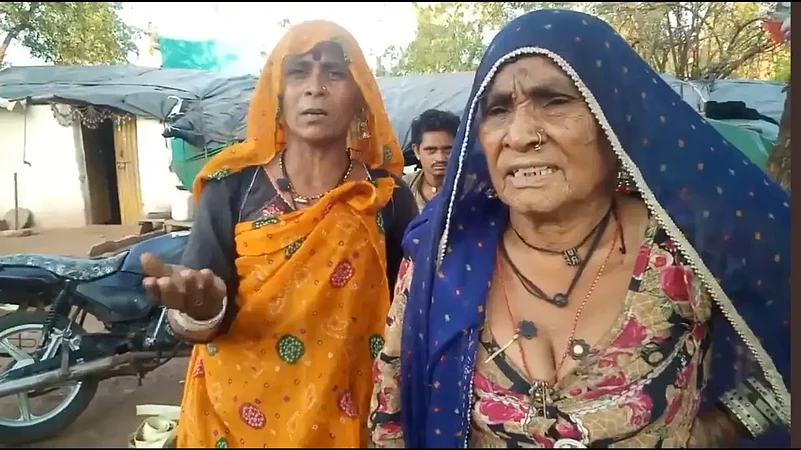As the police van passed by, 25-year-old Mamta didn't pay any heed. She just clasped her one-year-old daughter tightly against her chest and started patting, so that she could sleep. A month had passed since Prime Minister Narendra Modi had announced a 21-day?lockdown on March 24, 2020, the first of several due to Covid.
Not Pandemic, But Improper Sanitation Made MP's Gadia Lohars Vulnerable To Infection
Sanitation was at the heart of the fight against Covid-19. But for Gadia Lohars, rather than Covid-19, their biggest problem was other health-related concerns that emerged due to the unhygienic conditions in which they live, which in turn made them more vulnerable to infection.

Two years have passed since that day, but nothing much has changed. The only relief for Mamta is that her daughter can now walk and talk, so it is not as tough as before to manage her. That allows Mamta to help her family with household chores. I met Mamta when I was covering stories of migrant labourers during the lockdown. I visited some makeshift houses in the Shivpuri district of Madhya Pradesh where 10-odd Gadia Lohar families were staying.
For Mamta, every day was like a year during the lockdown, as her husband had abandoned her and their daughter. Now she was being considered as a burden by her own family, as she was living in her father’s makeshift house, where her brother’s family also lived.?
Gadia Lohars are classified as a “nomadic tribe”?who traditionally make metal utensils and instruments. They don’t stay in one place but keep on changing their abode from city to city for work.
?

Last Wednesday, when I called Mamta’s uncle Ramnarayan?to find out how he was, he said he was not satisfied with how things had turned out since the Covid lockdowns, but it was looking up. He is in the Morena district of Madhya Pradesh these days. “Who listens to the poor? No one. We are working, making utensils as we were doing then.”
Talking about Mamta, Ramnarayan said, “You tell me, at this age, her husband had left her, what should we do? Her life is destroyed. We are trying to contact her husband to see if he would take her back.” When I asked him why they weren't remarrying her, he said, “Nobody will marry her now.”
Two years ago, when I met 67-year-old Ramnarayan, he was sitting on a plastic chair, surrounded by his sons who were griping about police beating them up for working during the lockdown.
I asked him how the lockdowns had been for him, Ramnarayan had nothing but complaints against the administration, claiming they were not allowing him to do anything. “My son can’t sell these utensils, because there is a lockdown here. Police beat us for going out.”
Mamta is the daughter of Ramnarayan's younger brother, who was himself stuck in a different city during the first lockdown. They were then dependent on ration provided by NGOs. Though Ramnarayan’s family have ration cards, not all Gadia Lohars do. His family also had Jan Dhan accounts, opened under the Centre's scheme to provide affordable access to financial services for the poor. They had waited in long queues, risking their lives, to get the monthly Rs 500 provided by the central government to poor women during the lockdown. But that was not enough for them, "How can we run a family of six with just Rs 500?" asked Saroj, a member of the Gadia Lohar settlement.
Sanitation was at the heart of the fight against Covid-19. But for Gadia Lohars, rather than Covid-19, their biggest problem was other health-related concerns that emerged due to the unhygienic conditions in which they live, which in turn made them more vulnerable to infection.
- Previous Story
 Elections 2024: Ashok Tanwar Joins Congress Again; Sehwag Endorses Congress Candidate In Haryana
Elections 2024: Ashok Tanwar Joins Congress Again; Sehwag Endorses Congress Candidate In Haryana - Next Story
























